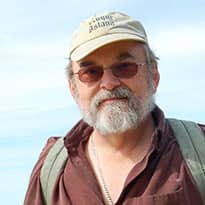Philosophy aside, there are immediate practical implications as well.
By claiming that morality must be imposed from without, these secular versions of transcendental monotheistic ethics have also utterly botched up our appreciation of being immersed within a world where everything is an expression of the sacred in one way or another.
The clearest example is to look at Tom Regan's original Kantian-style work on animal rights and Peter Singer's utilitarian approach to animal liberation. Neither could handle predators very well. Regan argued wolves violated the rights of deer. If I remember correctly, Singer suggested that the ability to suffer pain was what gave animals moral standing, and all were equal who could suffer. Again, predators, at least of mammals, were bad. These kinds of views have caused serious problems in the environmental community because, as Pagans are aware, death and predation are core dimensions of our world. Without predators the world would still be a place inhabited only by such as blue-green algae.
These ethical traditions cannot understand our world.
The Pagan ethic of respect, developed by so many hunting and gathering peoples, is in keeping with the realities of embodied existence. It is able to balance the tension between honoring principles regardless of outcome and concern for good outcomes. It is applicable to our relations with one another and with the more-than-human world within which we dwell. And respect is one end of an open-ended continuum of recognizing the value within another that can ultimately manifest as love, kindness, and compassion.
By teaching that value is immanent in the world, Pagan spirituality helps sensitize people to the destructive world-denying assumptions contained in pure transcendental monotheism. In the process of developing our insights we can also re-invigorate those Western ethical traditions that are free from the weaknesses of either Biblical commands or Kantian and utilitarian attempts to use abstract logic as a substitute for them.
So Where Are My Links?
This little essay lacks links to back up my assertions or give critics targets. They exist, of course, but I am writing this in hotel rooms between hundreds of miles of driving cross-country to conduct a conference this weekend in Portsmouth, New Hampshire. And providing links requires me to have the energy and time to search them out, which after 600+ miles of driving everyday, I do not.
Alas, the conference also falls on Samhain, so my Samhain ritual will be entirely in my head. Plus, hopefully a candle honoring those close to me who departed this year. May your own observances of this time be rich in meaning, filled with heart, and connected with loved ones and friends who have passed on.





